#lifestyle news greece
Explore tagged Tumblr posts
Text
📍Athens Greece 🇬🇷 Happy New Year 2025🎅🏻@alexandros._.art #travel #travelingare #athens #greece #newyear Καλή χρονιά με υγεία σε όλους σας!!
#lifestyle#myuploads#aesthetic#travel#travelingare#photography#architecture#drone photography#greece#Kali chronia#happy new year#athens#acropolis
51 notes
·
View notes
Text
Mami

#french riviera#luxury#pool#bahamian-mami#manifestation#luxury lifestyle#que#vacation#summer#queue#travel#Greece#nye#new year
2K notes
·
View notes
Text
Writing Notes: Ancient Greece (1–500 A.D.)

TIMELINE
1 A.D. Roman rule, Greek mainland, 146 B.C.–330 A.D.
125 Roman rule, Greek mainland, 146 B.C.–330 A.D.
250 Roman rule, Greek mainland, 146 B.C.–330 A.D.
375 Byzantine empire, 330–1453 A.D.
OVERVIEW. By the beginning of the first millennium A.D., Rome dominates the Balkans. Roman lifestyle, architectural achievements, and propagandistic endeavors influence art and architecture across the peninsula. As Roman dominion weakens, these territories are vulnerable to a series of attacks by the Goths, a Germanic people from southern Scandinavia. Constantinople is founded as the New Rome, and the triumph of Christianity marks the beginning of the Byzantine era in Greece.
KEY EVENTS
Before 67 A.D. The apostle Paul preaches in several major cities, including Thessaloniki, Corinth, and Antioch. It is at this time that disciples of Jesus are first referred to as Christians.
85–86 A.D. The Dacians, an agricultural people in the loop of the lower Danube, invade Moesia and inflict disastrous defeat on the Romans. In 88 A.D., a victory at Tapae prepares the way for Trajan’s later wars and annexation of Dacia. The Roman emperor Domitian sends engineers to Dacia as part of the peace treaty with the Dacian king Decebalus.
ca. 98–102 A.D. The Library of Pantainos is constructed in the Athenian Agora.
101–106 A.D. The Roman emperor Trajan conquers the Dacians during the First and Second Dacian Wars. His campaigns are memorialized on the spiral frieze of Trajan’s Column in Rome. The column and forum are built with funds largely from the royal treasury of the Dacians.
117 A.D. The Roman emperor Hadrian (r. 117–138 A.D.) completes the Temple of Olympian Zeus, the principal monument in southeast Athens. The emperor also erects a gymnasium and a number of bathing establishments in the vicinity.
ca. 170–180 A.D. Pausanias, a Greek traveler and geographer, writes his Description of Greece, sketching the history and topography of important cities and their surroundings. His accuracy is confirmed by archaeological finds, and his descriptions remain a valuable resource to this day.
257–263 A.D. The Goths raid Greece and Asia Minor. In 267 A.D., they sack Athens, Corinth, Sparta, and Argos.
280 A.D. In response to raids by the Goths, Athens constructs a major fortification wall, the first since the time of Perikles.
293 A.D. Diocletian, a Dalmatian by birth, reorganizes the Roman empire and establishes his famous tetrarchy as a response to difficulties in government. Under his rule, civil and military functions are separated. He makes a determined effort to stabilize the currency and introduce a new fiscal system.
300–305 A.D. Diocletian builds his palace near modern-day Split in Croatia.
330 A.D. Constantinople is founded as the “New Rome.”
378 A.D. The Visigoths defeat the Eastern Roman emperor Valens near Adrianople. The battle is seen as a watershed in the decline of the Roman army and its ability to stem the barbarian invasions.
391 A.D. The emperor Theodosius orders the closing of pagan temples. The Olympic games cease at this time or slightly later in 426 A.D., when the Temple of Zeus at Olympia is destroyed by fire.
Source ⚜ More: Notes & References ⚜ Writing Resources PDFs
#ancient greece#writing reference#writeblr#writers on tumblr#dark academia#spilled ink#history#writing prompt#creative writing#literature#light academia#writing ideas#writing inspiration#writing resources
58 notes
·
View notes
Text
Holidays, Offerings, and Other Ancient Praxis in Paganism: It's Not an Exact Science
─── ⋆⋅☆⋅⋆ ───
A lot of people just starting out have questions about the specific details of their praxis, which isn't necessarily a bad thing! Beginners, I've noticed, especially want to know how many holidays, what to do for them, when exactly they are, etc. Some are caught up in wondering what acceptable offerings are, how they should offer, and how should they pray. And these are all very reasonable questions from a beginner's perspective. The problem is that pagan religions, particularly those that are reconstructed from ancient belief systems, (in other words, not new age religions like Wicca) are not that easily simplified; there isn't one secret collection of knowledge on how to get it "right."
So, I wanted to break down a few of the difficulties with reconstructing historical traditions that you might run into and also remind you that maximum accuracy isn't always the goal.
1. Timeframe
The first problem we run into for recreating really anything, is that some traditions (ahem, especially Hellenic and Kemetic paganism) have a lengthy history. Those civilizations spanned thousands of years, so their religion did not exist in one singular, unchanged form for the countless generations it was practiced. If you want a modern example, we can look at holidays popular in modern culture, like Christmas, that have already changed and adapted over the course of maybe the last 200 years.
Now, put that into perspective for figuring out holidays from ancient religions. There is no single answer for how to go about Paganism because there wasn't just one correct way to practice when these religions were "alive." The best we can usually do is guesstimate based on surviving records and fill in the rest with our own UPG and experience. And that leads us to the second struggle:
2. Lack of information
This is a bigger issue for pagan traditions like Norse, Celtic, or Slavic. These people relied far more on oral tradition, well up to Christianization. Because of this, we don't have a super detailed idea of what certain aspects of the practice looked like, particularly from further back in their history. There's a bit we can infer from anthropological findings and secondary sources, although those aren't always reliable since many were retold from a Christian perspective, and we then lose the context.
3. Localization
This isn't so much an issue as it is something to simply be aware of. Ancient pagan civilizations were not monoliths of culture and belief; different regions had different practices. In Hellenic Paganism, for example, there were different deity cults that were city-specific. Just as culture changed over time, it also changed over space, so the recorded history of holidays in, say, Athens, wouldn't be the same as a rural village fifty miles north of Athens.
This is one that can really inform our modern practice because I'm fairly certain that the average practitioner isn't living like folks were back in those times. We can localize according to our own cultures, geography, and lifestyle, just as they had to do. Example: Olives and wine were a central part of Ancient Greece and many offerings were centered around this. I, however, live in the southern US. Instead of stressing about the cost of imported Olive Oil, I will instead pick honey suckles, offer a locally brewed Stout, or set aside some Crawfish.
─── ⋆⋅☆⋅⋆ ───
Now, this is all to say, don't get weighed down by the finer details of your practice, especially if you're a beginner, because the "right way" is in itself an oversimplification of the change inherent to spiritual practice. Even when the religion was still "alive," it was not a single, uniform structure (deconstruct that Othodoxy, ya'll).
Yes, a pre-made calendar is a good frame of reference for worship, and yes, a guide on how to pray to each God would have helped in the beginning. But odds are, you live in a different environment than ancient people, under different circumstances than the religion was originally practiced, and most of the original context under which they practiced no longer prevails. So you have room to create your own path.
Don't get stuck in the "learning phase" because your whole practice is the learning phase.
#paganism#paganblr#pagan blog#hellenic polytheism#pagan#hellenic pagan#norse paganism#norse polytheism#heathenry#kemetic pagan#celtic pagan#celtic polytheism#kemetic paganism#pagan witch#slavic paganism#slavic polytheism#eclectic pagan#hellenic paganism#beginner pagan#witchblr#witchcraft
26 notes
·
View notes
Text
British Intelligence took a dead man's body, gave him a new identity, and planted fake documents on him to deceive the Nazis.
Operation Mincemeat became one of the greatest deceptions in wartime history.
Here’s how they pulled it off: (🧵)
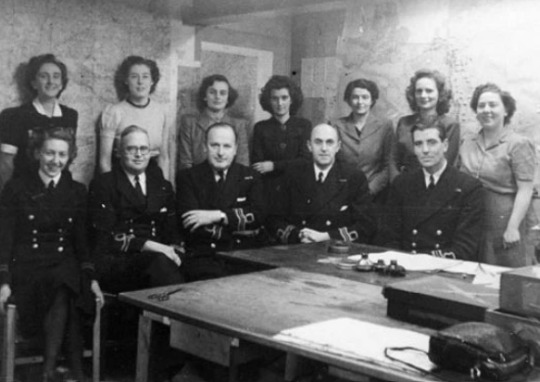
Ahead of the invasion of Sicily in the summer of 1943, the Twenty Committee planned a new covert operation with Section 17M, the section within Naval Intelligence 12 (NID 12) responsible for naval deception and handling of special intelligence from ISOS.
Its head Ewen Montagu served as the NID representative on the Twenty Committee.
The aim of the new major deception was to fool the Germans about the location of the invasion in Southern Europe by floating the dead body of an officer of the Royal Marine off the coast of Spain.
In his briefcase, chained to his wrist, would be papers that included fake invasion plans.
It was a work of total fiction that took some of the most creative minds in intelligence to write the script.
It was codenamed Operation Mincemeat and would be one of the most audacious naval deceptions of the war.
The unknown element was whether the Germans would fall for it...
Section 17M set to work in meticulous detail on Operation Mincemeat to ensure that nothing was left to chance.
By the planning stage, the section had 14 members, two-thirds of whom were women.
The female secretarial team was nicknamed ‘the Beavers’, the youngest of whom was 18-year old Jean Leslie.
The first priority was to acquire a corpse and preserve it until the operation was set to go.
Sir Bernard Spilsbury (British pathologist) and Bentley Purchase (coroner of the St Pancras mortuary) were consulted by Section 17M.
In St Pancras mortuary was the corpse of 34-year-old Glyndwr Michael, an unemployed labourer of no fixed abode who had committed suicide with rat poison.
He was about to be given a new identity and the leading role in Operation Mincemeat.
The details of his new identity were to be worked out by Montagu, Flight Lieutenant Cholmondeley and Joan Saunders.
They decided on ‘Major William Martin of the Royal Marines’, born in 1907.
It was not only a matter of identity but creating a new personality – his likes and dislikes – and his family background to be more convincing to the Germans.
They spent the days discussing and slowly compiling a portfolio of the man.
In the evenings they went off to the Gargoyle, Montagu’s club in Soho, where over drinks they continued to build up their imaginary hero.
Major Martin was given identity papers, and a card to show he was a member of the Naval and Military Club in London, with a history of mounting debts as confirmed in a fake letter from his bank asking him to pay off an overdraft of £27. 19. 2d.
The fictitious paperwork and apparent extravagant lifestyle were necessary to hold his cover.
Joan Saunders noticed that Major Martin had no love life and it would be more realistic for him to have a girlfriend.
The women of Section 17M created ‘Pam’ as the pretty young fiancée.
A photograph of ‘Pam’, whose real name was Jean Leslie, was placed on his body to authenticate the cover story further.
The snapshot black and white holiday photograph was of Jean Leslie, taken by a friend and member of the Grenadier Guards who had fallen in love with her.
Miss Hester Leggett who headed the secretarial team has been credited with writing the fictitious love letters purporting to be from Pam, but in reality it was probably a combined effort by a number of women.
On 3 April 1943, the body of Major Martin was dressed in the battle dress and flashes of the Royal Marines by Montagu and Cholmondeley, with assistance from the coroner.
A briefcase with the forged documents was strapped to the wrist of the corpse, and included invasion plans to deceive the Germans that an Allied assault was soon to take place on Greece and Crete.
The body was placed in a specially manufactured air-tight container to prevent deterioration and loaded onto submarine HMS Seraph.
The submarine left the port of Greenock in Scotland and headed for Spain.
At 04:30hrs on 30 April 1943, the body was launched from HMS Seraph near Huelva, off the coast of Spain.
It was picked up by a Spanish fisherman who passed it to Spanish naval headquarters.
This set off a chain of events that would lead to the invasion plans falling into the hands of the Germans.
The Spanish naval authorities refused to hand over the briefcase to the British consul and instead sent it to Madrid where the three letters were opened and photographed.
The envelopes were then re-sealed to look untouched and passed to the British Naval attaché.
The photographed versions were dispatched to the Germans with a request for strict secrecy.
The German Intelligence Service in Portugal finally heard about the documents and was summoned to a conference on 12 May.
In the interim period between the body’s discovery and the conference, a post mortem by Spanish authorities concluded death by drowning.
On 2 May 1943, Major Martin was buried at Huelva and his funeral attended by Spanish naval and military officers.
On 12 May, at the Admiralty in London, Juliette Ponsonby picked up the day’s decrypts from the teleprinter room.
Bletchley Park had intercepted a wireless message sent by general Alfred Jodl, the chief of the Operations Staff of the German forces, responsible for all planning and strategic operations, and he confirmed that an enemy landing on a large scale was projected in the near future in the Eastern and Western Mediterranean.
Copies of Jodl’s message were dispatched across the German High Command, and Montagu knew that the Germans had been duped by Operation Mincemeat.
It achieved its aim of convincing the Germans that an invasion was planned for Sardinia, rather than Sicily and resulted in the Germans dispersing their troops and sending reinforcements to Sardinia.
A whole Panzer division was moved from France to the Peloppennese and establishing communication headquarters at Tripoli in mid-May 1943.
Verification of this was received back in England via Special Intelligence and Ultra decrypts.
Operation Mincemeat was supported, too, by female Agent Bronx who informed her German handler that an Allied invasion of France was to take place in September 1943.
Her messages were part of Operation Cockade which was a series of deceptions designed to relieve pressure on the Allied landings in Sicily. It had the dual effect of aiding the Russians on the Eastern front by diverting attention towards other alleged attacks by the Allies in Western Europe.
Documents captured by the Allies at the end of the war corroborated the fact that the Germans had fallen for the fictional invasion plans.
Operation Mincemeat was ‘a small classic of deception, brilliantly elaborate in detail, completely successful in operation.’
An appendix to a report on the operation ended with the words: ‘MINCEMEAT swallowed whole.’
The Double Cross System was proving so successful that by the end of 1943, the system was more powerful and better equipped than before.
The Twenty Committee was confident to tackle the biggest deception of all.
Uppermost in the mind of its members was whether a similar ruse as Operation Mincemeat could deceive the Germans ahead of D-Day...
(continued...ending)
If you enjoyed this thread and love WW2 history, please consider following me @DrHelenFry for more content like this.

48 notes
·
View notes
Text

In ancient Greece, Hekate's Deipnon was observed during the dark phase of the moon, marking the last day of the Hellenic lunar month. This lunar calendar begins with the new moon, when the first sliver of light is visible, and ends with the dark moon, when no light reflects from the moon at all.
Hekate's Deipnon was dedicated to the goddess Hekate, who was associated with purification, expiation, and protection against restless spirits. Her name, according to the Liddell and Scott Greek-English Lexicon, means “bringer or giver of light" (Ekate Phosphoros), although she was most strongly associated with the liminal spaces between life and death and the mysteries of the underworld.
The Deipnon served multiple purposes, including purification of the home and self. This purification process, known as oxuthumia, involved sweeping and cleaning the home, gathering leftovers from previous rituals, and smoking the house with a censer to create a clean, ceremonially purified space.
In ancient Athens, it was believed that restless spirits roamed on the night of the Deipnon. Offerings, including leftover food, ashes, and a clay censer, were left at crossroads to honor Hekate and appease the souls. It was also customary to scrifice a dog if the household felt particularly polluted or if they needed to make amends with Hekate. In this case, the family would touch the dog to transfer any "pollution" onto it before the sacrifice, which served as a scapegoat ritual. (This is just historical. Please don't s4crifice a dog)
Traditional offerings include: sweeping from the house, garlic, eggs, leeks, things you don't want to bring into the next. You could leave it on alter or a three way crossroad. As in antiquity, the Deipnon is a time for clearing out the old and preparing for a fresh start. Some practitioners also perform divination or meditation during the Deipnon to connect with Hekate and reflect on personal intentions and needs.
Modern offerings include: clean out the refrigerator, tend to the worm composter, dispose of the previous month's contents of Kathiskos (I’ll make a post on this) while cleaning out or taking stock of what's in your kitchen pantry, fulfill your previous month's obligations, duties, promises, pay off all debts (financial and emotional) etc.
For many modern polytheists, Hekate's Deipnon is a monthly devotional act of honoring Hekate rather than focusing on appeasing restless spirits. Rituals are adapted to fit contemporary lifestyles and spaces, but the emphasis on purification, transition, and renewal remains central to the practice.
There are differing theories as to if Hekate's Deinon is solely a meal offered to Hekate, or if there is a secondary intent of the meal offering going to the less fortunate. For example: Aristophanes, Plutus 410 ff (trans. O'Neill)(Greek comedy C5th to 4th B.C.): "Ask Hekate whether it is better to be rich or starving; she will tell you that the rich send her a meal every month li.e. food placed inside her door-front shrines] and that the poor make it disappear before it is even served."
Check for dates at Hellenion.org/calendar or watch out for the lunar cycles.
Sources:
1. Liddell, H. G., & Scott, R. (1940). A Greek-English Lexicon. Clarendon Press.
2. Johnston, S. I. (1990). Hekate Soteira: A Study of Hekate's Roles in the Chaldean Oracles and Related Literature. Scholars Press.
3. Aristophanes. Plutus 410 ff. Trans. O'Neill, 5th-4th century B.C.
4. Kearns, E. (1989). The Heroes of Attica. Center for Hellenic Studies.
5. Burkert, W. (1985). Greek Religion: Archaic and Classical. Harvard University Press.
6. Parker, R. (2005). Polytheism and Society at Athens. Oxford University Press.
7. Ogden, D. (2002). Magic, Witchcraft, and Ghosts in the Greek and Roman Worlds: A Sourcebook. Oxford University Press.
8. Hellenion.org and other Hellenic polytheism blogs/texts
(These sources are the same for the other posts I’ll make for noumenia and agathos Daimon)
#lunar cycle#moon#hekate#academia#ancient greece#hellenic polytheism#hellenic pagan#hellenic worship#ancient athens#history#culture#lunar calendar#witchblr#education
45 notes
·
View notes
Text
Positive news of the day:
Sklavenitis (big Greek owned supermarket brand) stops the insanity of 6-day working week and switches it to 5-day working week for both part time and full time employees, while motivating other brands to follow the trend.
As you may know, Greece suffers from extreme urbanisation while remote islands and provincial settlements fall into desolation. It is not uncommon to go in villages in Greece and find them entirely empty with only one or two elderly locals trying to keep them alive. The priest of one such shrivelling village in the very mountainous region of Evrytania took the initiative to call for relocation of people to the village, announcing there was a house available for free (or for low rent, not sure) suitable for a family and ensured job for at least one adult. He was aided in this project by the teacher of the village who could not bear see her classes empty anymore. The call was answered relatively fast - a family of Greek expats with six children :) formerly residing in Germany are relocating to the village, aiming for a rural lifestyle far from the stress of Berlin or Athens. This phenomenon is prominent in many regions of Europe and such tactics have been employed in Switzerland, Austria, Northern Italy etc. I hope to see this start happening in Greece as well - despite and against the financial issues of the country - because the population distribution in Greece is HORRIBLE. EDIT: There was interest from 100 families!!!
71 notes
·
View notes
Text
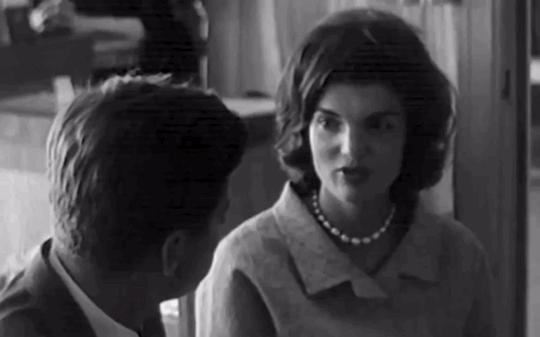
Reunion: A Flash Fiction
Summary: October 17, 1963. Mrs. Kennedy finally returns from her trip to Greece, and her husband is waiting for her and ready to welcome her home.
Tags/Notes + Pairing: jfk x jackie kennedy, mentions of past infidelity, improved relationship, loss of child mention, caroline and john jr. are in it too lol.
Word Count: 897 words
A/N: this one is shorter and a bit messier than my last fic :,( i’ve been having quite a bit of brain fog so unfortunately some things may be a little off. sorry guys!! i hope you enjoy it <3 divider was made by @/ aquazero. hope you guys caught the jackie 2016 reference ;)

Jack sits in the backseat of the car, nervously playing with his hands in the darkness. Every so often, he looks out onto the empty runway only illuminated by blinking lights. Jackie will be here any minute now, but why do those minutes have to pass so slowly?
The past few weeks had been awfully rough without Jackie; The depression and headaches he acquired from his withdrawals after finally being able to stay abstinent and cut himself away from the rest of his ‘women’ was rough. He’d been so used to that lifestyle, he never realized how addicted he was until he found himself desperately writing a letter at midnight to a woman he had ended his affair with over a year prior. When he read the letter the next morning, he embarrassingly shoved it in the bottom of his desk with the intention of discarding it.
Having to continue to mourn the loss of Patrick on his own after Jackie left was even worse. Sure, he had dealt with plenty of things on his own before, and Jackie had been there for him up until the day she left; but there were times at work where he felt so alone. He didn’t dare bother his wife about it when she was recuperating from the loss. So when he got off the phone with Jackie, there was no one to call, no one to talk to, and no one to see. Just cabinet members and paperwork. When he cried in his wife’s arms that day, he felt as if his eyes were opened to a new world. To be comforted by someone he loved dearly and not shunned for crying made him feel…loved… Though this was an incredible realization for him, he didn’t feel comfortable opening himself up like that with anyone else; at least not yet. Joan was there for him when he secluded himself in his room and didn’t come out, and he’d gotten a few sympathy calls here and there; but it just wasn’t the same as that morning when he felt Jackie lovingly wrap her arms around him as he let his emotions run like a river.
“Daddy, look!” Caroline exclaims, pointing out the window with that innocent smile she shares with her father. “I think I see mommy!” She continues, climbing over her dad and brother to see the plane landing in the once empty runway. Jack can’t help but smile at her excitement and
“I think you’re right, Buttons! Lets go out there and meet her. But stay close to me okay? Don’t run out in front of the plane before they put the stairs down.” He instructs, opening the car door and stepping out before taking Caroline and John’s hands into his.
“I wanna go on the plane!!” John shouts, pulling against his fathers hand as they approach the runway. Jack does his best to hide his own excitement as the stairs are placed in front of the door. And as soon as the door opens, Jack bends down as best he can.
“Go on, go give mommy a hug.” He tells them before rising and letting them rush off ahead of him and climb the stairs.
As Jack follows his children, he finally comes face to face with the woman he missed so dearly.
Jackie looks just as beautiful as she did when she left, and as she rises from greeting Caroline and John to look him in the eyes, she looks just as happy to see him as he does for her.
Without a word, Jack leans over and takes Jackie in his arms. His back issues and lack of experience in physical contact makes his hugs quite stiff, but Jackie doesn’t mind one bit.
Jackie pulls back slightly and wraps her arm around her husbands neck, pulling him in for a kiss.
“I missed you, Jack.” She sighs, shuffling the two of them away from the open door so that they can’t be photographed by the swarm of paparazzi outside and holding him close.
“I missed you too, Jackie…” Jack smiles, letting go of his wife and glancing at the open door leading out the crowds of photographers awaiting the First Lady’s return.
“You’ve got quite an audience out there…Are you ready?” He asks teasingly, brushing a lock of hair out of Jackie’s eyes.
“Of course, I love crowds.” She replies, her voice laced with sarcasm. She pulls away from her husband and reveals herself to the sea of cameras. They run their films and snap their flashbulbs at the family as they descend the stairs and make their way to the car waiting for them. Jackie is the first to enter the car, then the children, and finally Jack.
“It’s good to have you home, Mrs. Kennedy. Now, why don’t you tell me about Greece. I take it that you had a good time?” Jack teases, reaching his arm over their children clinging to their mother so that he can put his arm over her shoulder.
“You’ll know when we get home….” Jackie smiles back, giving her husband a discreet wink before looking down at Caroline and John, who had managed to fall asleep in their mothers lap. “But first, I think it’s time for bed.” She finishes quietly just as the car comes to a stop in front of the White House…
#tw loss of child mention#tw past infidelity#jfk#kennedyposting#john f kennedy#john fitzgerald kennedy#jfk x jackie#fic#flash fiction#jackie kennedy#the kennedys#jacqueline kennedy
47 notes
·
View notes
Text
About Me !
Hi I’m Summer or Autumn or Winter whatever floats your boat I guess! Here’s a short Q & A to answer some basic questions so we can get to know each other!
Birthday: march 14, 2006 Pisces baby for life ♓️
Fav Singer? Currently it’s Nessa Barrett and Sabrina Carpenter
Fav Color? I LOVE PURPLE #still team nick!
Fav Band? 5 Seconds of Summer (I’m a micashcaluke girl) & The 1975
Fav Triplet? I was originally a nick girl but I eventually fell for Chris and then Matt caught my eye cause he was quiet and mysterious and I love that. But ultimately I can’t pick (most of my books are about Matt though so take that as u will)
Fav Friend of the Triplets? I loved when they were friends with Nessa. I love Madi and Madison and I LOVE NATE (I’m a Nate girl most definitely)
Fav Songs? Sex by The 1975, Constellations by Jade LeMac, Breakup by Ashton Irwin, Collide by Rachel Platten, Romance by My Chemical Romance, Heartbreak Girl by 5SOS, Out of Oklahoma by Lainey Wilson and SOO MANY MORE
Fav Movie? I loved The Florida Project, Descendants 2, Sleeping Beauty, Alice in Wonderland, Mall Cop, The Hangover and like SO MUCH MORE
Fav Tv Show? The Vampire Diaries, Teen Wolf, Outer Banks, Bones, Supernatural, The Walking Dead & SO MUCH MORE
Fav Emojis? 🪩💌🌪️🩰🦚💋🪽👒🦋🦢🐚🪸🌷🥀🌙🪐💫✨🌩️🫧🫐🥭🥥☕️🧋🎱🏹🎬🎲🎰⚓️🎠🎞️🔮🧿🩻🔑🧸🎀🪞🪭📍❤️🔥🤎
Fav Place? I prefer LA lifestyle to New York (I’m a true tumblr girl btw I’ve been here for years so LA speaks to me so differently than NY speaks to yall) I adore Disneyland, I want to travel to Italy, France, Greece, Dubai and yeah
Fav YouTubers? I really love Sam and Colby, Baylen Lavine, Jake & Johnnie, Jesssfam, idk I don’t follow people on YT who aren’t related to the triplets in some way, or aren’t my friends
Extra Stuff About Me:
I’m 18, a dancer, I’m not currently in school or working so I’m kinda bored. I’ve always dreamed about being a YouTuber since before YouTubers even made good money to live off of, and I’ve started my YouTube career ofc… Anywho, my other dreams are traveling, being in music videos, and learning new languages.
I’m French, Native American, and Mexican with a bit of German and Irish (☘️?? I think) mixed in there. So I’m pretty well rounded and I HATE TRUMP MAKE AMERICA BLUE AGAIN !!
Huge Larry Stylinson girlie even in this big year of 2025. But I’m not an insane shipper I love them as friends too
I hate enemies to lovers tropes, one bed, fake dating, & bully tropes… but I love long time friends to lovers, incredibly painful slow burn, bad boy x good girl, “I don’t wanna be saved” x “I’d do anything to save you” and yuh!!!
Stick around a while I hope I don’t disappoint
(Things I want to write for are in tags and there’s probably stuff I missed but feel free to ask questions too I don’t mind)
#chris sturniolo#chris sturniolo smut#christopher sturniolo#matt sturniolo#matt sturniolo smut#nick sturniolo#nicolas sturniolo#sturniolo triplets#sturniolo triplets x reader#ashton irwin smut#sam and dean#dean winchester smut#dean winchester x reader#dean winchester#sam winchester#harry styles#niall horan#louis tomlinson#zayn malik#liam payne#the vampire diaries#mid 90s#sabrina carpenter#madison beer#taylor swift#nessa barrett#sturniolo smut#carl grimes smut
21 notes
·
View notes
Text
HBO Rome has its share of problems as a a historical show but they don't often bother me because a. I had fair warning beforehand so could adjust my expectations accordingly b. I don't know that much about the political aspect of the era so there are definitely some major inaccuracies that I just blissfully don't notice 😌😌 and c. its representation of just the general flavor of Roman culture delights my shallowest expectations so much that it makes up for most the show's other shortcomings.
There's graffiti on every wall and a shrine on every corner, Pullo is negotiating transactional favors with the gods, people can't get work bc slaves'll do it for free, there's elaborate religiously-tinged swearing, despite installing himself as dictator Caesar still has to get the priests on his side so they'll make sure the bird-movements they interpret are favorable to him, "uuugggh we conquered Gaul and made it part of Rome but we never considered the fact that those ugly dirty Gauls would actually end up in Rome afterwards," the news announcer with his oratory gestures and sponsorship messages keeping a mostly-illiterate crowd informed, getting to see the shiny religious/political center of the city as an artificially maintained island in the midst of a surrounding seedy, smelly, swampy, under-structured and overpopulated reality (something something "Greece's republic vs Rome's shithole" or however that quote goes), the glimpses of larariums in the houses and people attending to them in the background, Rome only functional because it can make a new colony to parasite from every 3 years but then everyone loathes the idea of having to live in The Provinces, uh-oh sister-in-law got wasted at your party and knocked over the bust of Janus now your business is hexed and you'll have to do a bunch of sacrifices if you want that sorted out, Servilia is out here cursing her ex with erectile dysfunction, slavery is mundane and normal and comes in every flavor-- from Atia's slaves who she beats and berates only to cry on Merula's shoulder like a child, while the latter definitely has some sort of genuine loyalty and affection for her mistress (if, perhaps, only pityingly), Caesar and Posca and Servilia and Eleni and their close relationships bordering on genuine friendship, Pompey telling his slave he must be "lucky" not to have to make his own decisions and Octavian telling that young prostitute he feels sorry for her having been taken from her home and made a slave by Rome but having no qualms or questions at all about the process/institutions that caused it, the antagonistic, friendly, competitive, conspiratorial relationships between the slaves themselves, within and without various households-- you've got people who are devoutly religious and people who definitely aren't and people who are ritually devout while living dogmatically outrageous lifestyles and people who absolutely think a host of gods and spirits control every facet of the world and life but still don't care and Octavian with his "some sort of divine cosmic power definitely is at the root of everything but it has no real interest in us or our lives" and Gaia confessing to murder on her deathbed even though she knows it will tarnish her relationship and memory forever because she genuinely believes the gods will torment her for her crime if she doesn't--
They really, really committed to trying to show people in the past dealing with the same insecurities, appetites, and big-and-small-scale woes as modern people while still representing them as living in a vastly different world from our own-- and one represented through huge, beautiful, detailed, living-feeling sets and set dressing 😍 -- with hugely different attitudes and mores and didn't feel the need to strip that layer of alienness to make things more easily digestable or "believable" (which is, frankly, tv talk for "not challenging to an ignorant viewer's ill-informed historical understanding," something I consider unforgivable) to a modern audience. They did that so much that I think the only time I've seen it done better was in The Northman (which is craaaazy to say) and there are few other shows or movies I can think of that come close to matching that effort. It's what I love best about the show and I think one of the things that made it such a standout and has made it a classic since.
15 notes
·
View notes
Text
CHARLES LECLERC

the bold headlines are smut
Morning routine
christmas wish
healthy lifestyle
puppy
forbidden love
En couple
mine
only him
-him only (2)
new guy friend
enemys?
-enemys? (2)
-lovers? (3)
we belong
swoon
maybe we will meet again
charles,a dad?
in Greece, the magic happens
DECEMBER MASTERLIST 23' :
Building a snowman
Cold hands
Boxing day
DECEMBER MASTERLIST 24' :
New Year’s Eve
celebrating christmas?
winning you to christmas
hoping for you on christmas
Here you can send in requests if you want to loves (:
189 notes
·
View notes
Text
I have been in Corfu for a total of 10 weeks now - living the life as a Yoga teacher on a beautiful island. How do I feel? This was a fantastic opportunity and I am so grateful for this amazing experience. The island of Corfu is stunning with incredible sea views, a beautiful climate and a wonderful Mediterranean lifestyle 🧘🪷🙏
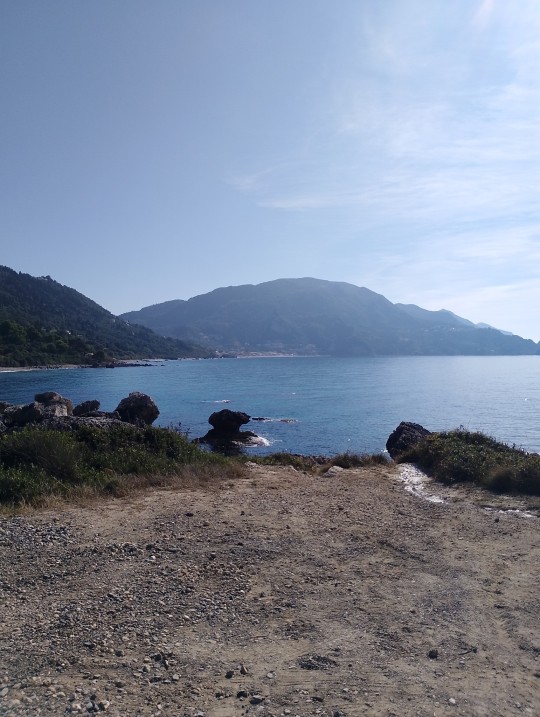
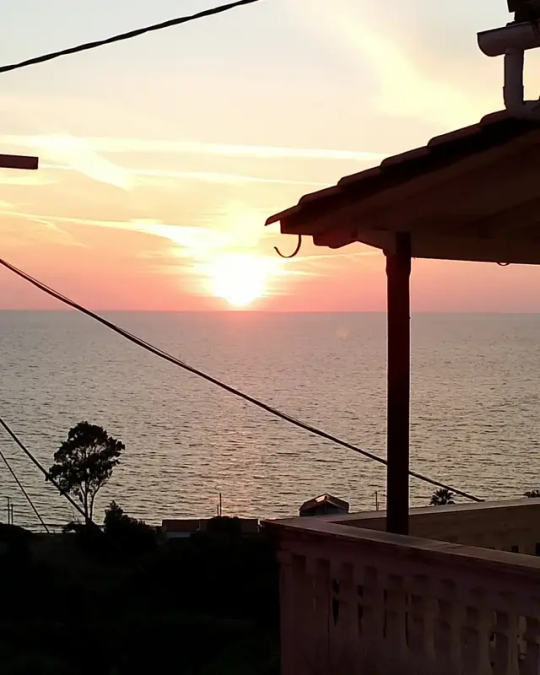

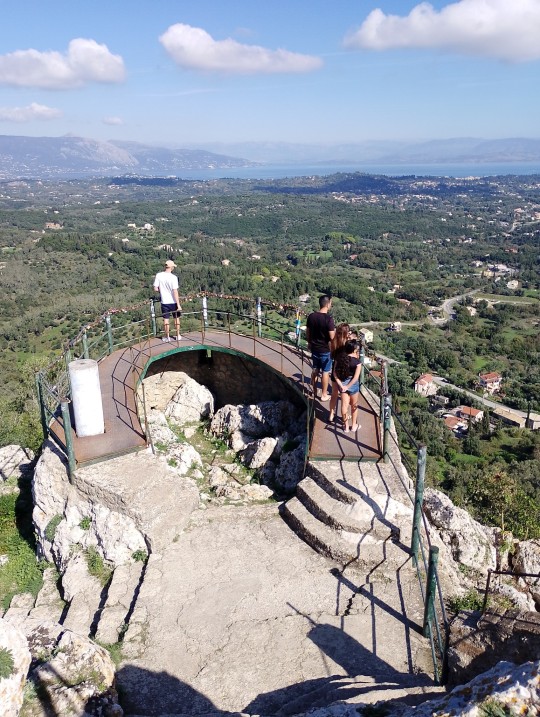

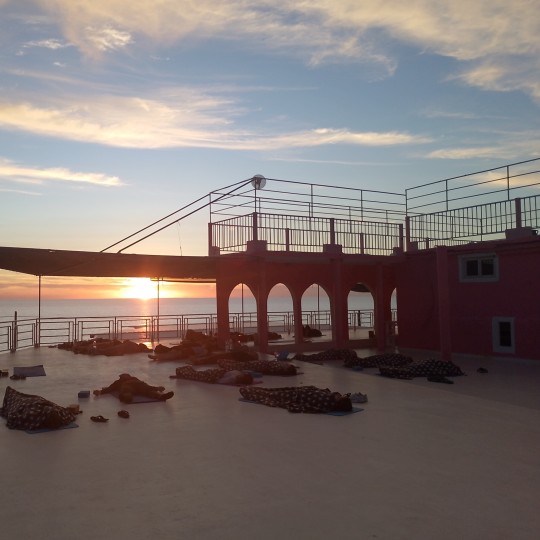

#positive mental attitude#positive#positive thoughts#bemindful#stay healthy#be healthy#mindfulness#health & fitness#selfcare#stay fit#yogalife#greece
26 notes
·
View notes
Text
ASK GAME
@the-little-moment wrote a fun new ask game and was kind enough to tag me in it :D I really like this one!!
Any eating utensil preferences? Not really, although I agree with Lil that the cheapy flat-sharp utensils are appalling on a sensory level.
A genre of music you love? weirdly specific, but 70s freakfolk/psychedelic folk, bands like Comus, Pentangle, Spirogyra, Fairport Convention… god it’s so so good
A type of seasoning/condiment that would make anything edible for you? This sounds so basic, but salt. It gets such a bad rap but it makes food taste like food and I think a lot of people who think their cooking doesn’t taste good just don’t salt it properly. Unfortunately, I also buy bespoke salt and I’m picky about brands; it’s my Millennial nonsense avocado toast expense, I shall never retire.
Pens or pencils? What kind? I love a nice pen, but honestly I almost never handwrite anything anymore.
What's your weirdest/most interesting hobby? Uh, the kind of bird-watching where some crows I know personally have come into my kitchen through a faulty window screen and stolen my bread. They don’t even like bread, they just did it because they could. I can’t quit them. There are some outside right now making eye contact with me through the window to beg for peanuts.
If you had to get rid of one color entirely, what would it be? Specifically banana yellow. Other shades of yellow are fine, even great. Goldenrod? I love it. Mustard? Yes! Butter-yellow. Oh yeah. But I don’t like that banana shade, it reminds me of fast food joints and the smell of 90s scratch-and-sniffs.
Any allergies? I have a skin contact reaction to mango and pineapple. So I can eat them, I just look stupid doing it because I can’t let it touch my lips.
Favorite fictional character? Doo-ku, doo-ku, doo-ku! I wanna kill that man.
Favorite real person that you don't personally know? This one’s hard! Honestly, Patricia Lockwood of Miette fame - I followed her twitter from way back before that tweet, her poem “Rape Joke” was life-changing, and I feel like her sense of humor defined my own from re-reading Priestdaddy too many times. I relate to her so much as a queer person from a super religious background.
How many alarms do you have set? 2
Do you have any pets? Do you want some? I’ve got a dog, Sven, and a cat, Trash. They are plenty.
Favorite drink, alcoholic or non? Prosecco and water. Not mixed together, just for alcoholic and non respectively.
Favorite smell? Woodsmoke, woods-after-the-rain, lavender, jasmine, gasoline, garlic cooking in butter
Favorite shoes? I wear the same pair of leather Blundstone boots every day with almost every outfit; I am careless with my belongings and they keep up with my lifestyle of lurching off trail to inspect a mud puddle and then falling tragically into it
How do you feel about bugs and spiders? I love ‘em! I have a giant scar on my ankle from being bitten by a venomous brown recluse a couple years back.
Outdoors or indoors? I am an all-weather outdoors person to the point of absurdity. I'm friendly with the owner of our downtown winery, and she once told me "you know you don't have a normal person's conception of what is 'sitting outside' weather??"
Sunny or rainy? I like the rain, but if it goes on too long I turn into a bird with a blanket over my cage.
Where would you really like to visit? Would you move there? wugh, I was supposed to be in Greece again this fall, but I’m experiencing one of those occasional years of cascading life misfortunes. And yeah, we’d messed around with the idea of moving before even this hell administration, but I’m not sure I could handle the earthquakes.
Are you a people person? Oh yeah. If I start liking a person, I unironically want to be their friend, and I'm gonna try and try until I look like a fool. People are fascinating, I genuinely like them.
At what temperature do you keep your home (or would if you could)?
It's 59/15 degrees in my house right now with all the windows open and the fog still burning off, and this feels exactly perfect.
No pressure tagging: @purple-ant @rochenn @calcedon79 @blueberry-ry @bolithesenate @dapurinthos @reconstructwriter
14 notes
·
View notes
Photo
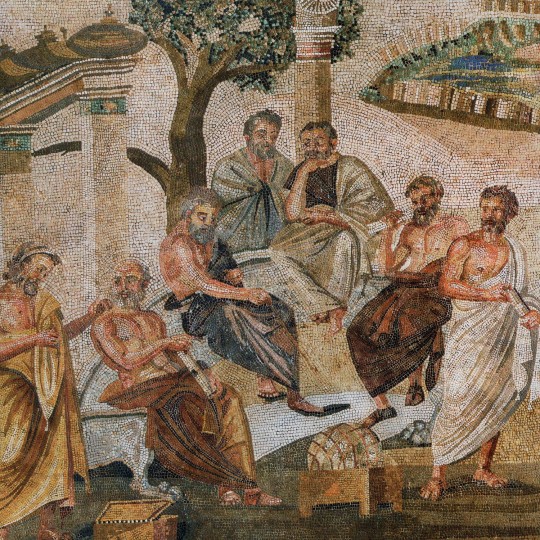
Roman Students in Athens
Training in oratory was a crucial part of Roman education; it was associated with a young boy's transition into adult life. As Athens was considered the intellectual centre of the eastern Mediterranean, many students undertook long journeys so that they could attend the best-known specialised rhetorical schools or study at one of several established philosophy centres.
Roman Education
Education was seen by the Romans as crucial to self-advancement. For young upper-class boys, it was key to obtaining an important position in ancient Roman society. Girls from the well-to-do and elite circles tended to be married at a very young age and did not formally advance their studies, although they may have received a sophisticated education from private tutors.
Originally, training in oratory was not provided within a school context but carried out under the tutelage of a famous statesman who would prepare his young pupil for a political career in the Roman government. However, by the 2nd century BCE, Greek culture had a significant influence on the Roman Republic, and the traditional approach made way for the Greek education system. In Greece, specialised teaching centres had existed for centuries, and gradually, schools of oratory became established in Rome, too. Ancient philosophy was divided into three areas; ethics, physics, and logic; pupils wishing to study philosophy could attend centres offering studies in Greek on doctrines such as Epicureanism and Stoicism. Alternatively, the young Roman boy could leave home to study abroad.
Some modern scholars have referred to this period in a young person's life as going to 'university'. However, the word is used loosely as there was no official curriculum and no official degrees. Nevertheless, going to 'university' in ancient times did entail not only advancing one's studies but also leaving one's family for a new environment and lifestyle in which a student could become a part of the culture of a famous intellectual centre.
During the Republic, notable figures were amongst those who travelled abroad for educational purposes including Julius Caesar (c. 100-44 BCE), the politician Marcus Junius Brutus (85-42 BCE) the orator Cicero (106-43 BCE), poet and satirist Horace (65-8 BCE), and son of Cicero. Generations later, we have the writings and correspondences of former students like the Latin rhetorician Aulus Gellius (123-165 CE), the Greek sophist and rhetorician Libanius (314-393 CE), and the Greek sophist, Eunapius (c. 345 to c. 420 CE), who provide valuable insights through their own experiences of studying in Athens.
Continue reading...
39 notes
·
View notes
Text
farleigh start thoughts
this is going to be a very random, very eclectic post. i just wanted to share some stuff that i can't figure out how to post independently. some headcanons, some commentary, some references... who knows. probably just a lot of yabbering.
"keep the rain" by searows. dude. just listen to the lyrics, i swear.
i was wondering about what the cattons really give farleigh. there's kind of... endless possibilities. his family in america is emotionally neglectful, but how do the cattons differ? i can imagine that having felix and venetia, two people of similar ages that he can glue himself to, is important to him. i also think that frederica start is an overlooked aspect of farleigh's character. e.i. he needs to have some semblance of closeness with the cattons if he has a chance at convincing them to financially support his mom. i think his ultimate mistake when confronting felix was perhaps centering himself, when the conversation was originally about frederica. although farleigh needed to finally say what he knew all along; he's different, and he's being treated differently because of it. i digress; farleigh wants companionship, a loud and distracting lifestyle, the security that only wealth can give you, and the possibility of helping his mom. that's how i sum it up, at least.
although farleigh is prone to escapism (into his wealth, into drugs, into his social life, into the games he plays), he doesn't seem as committed to cognitive dissociation as the rest of the cattons. i don't think farleigh is deluded by the wealth and power he has access to; i actually think it's the opposite. he is so hyper-vigilant of what he can lose that he's entirely aware that he doesn't know how to exist without wealth. the rest of the cattons have convinced themselves that wealth isn't an inherent part of them (elspeth with her odd anecdotes that imply she's a worldly woman, felix with his down-to-earth "i'm beyond classism" attitude, venetia with her general boredom of wealth and everything attached to wealth). farleigh never has that attitude. he knows exactly who he is with wealth, and he's terrified of what he will face without wealth. how would he cope with his sometimes-debilitating otherness? how would he have any power, any control, if not wealth and status? (this is a warped perception of reality, but i believe that's the perspective that comes with omnipresent wealth since you were born).
i think that farleigh would smother his room in pictures. i mean all kinds of media. films he likes, artists he likes (beyonce, justin timberlake, gwen stefani, aaliyah, madonna), pictures of new york, polaroids, photo booth strips, favorite travel locations (greece, italy, LA, germany, whatever), chad from hsm because that's his hair inspo, vogue magazine clippings- jesus, dare i say... postcards? i'm picturing anything and everything. but let's say that farleigh is a very private person. i mean, he's a professional hider, secret keeper, "inside thoughts" kind of person. i'm imagining anything just slightly too personal would be kept in a box. maybe that same box he keeps his cocaine! family pictures, baby pictures, personal photography (would it be bold to imagine farleigh as a notorious street photographer?), old knick knacks like his first friendship bracelets or seashells he found on the beach. i'm getting carried away. farleigh seems like the type to consume, linger, consider. i feel like anyone who wears gucci loafers also has an immense amount of sentimental material.
farleigh doesn't like english food that much.
farleigh is clearly able to apply himself in an academic setting, if the tutoring session is anything to go by. he takes a gamble on whether spending time with people is more beneficial than actually doing his work, and maybe he's just a little bit bored by school. but at the same time, he listened to oliver's entire essay and counted each individual time that oliver said "thus." where the tutor wasn't even listening, farleigh made the choice to specifically comment on oliver's rhetorical content because he understands how to apply yourself academically, even if you've yet to get around to the actual assignment. so.
i think farleigh likes to read. clearly felix, vee, and farleigh all made an agreement to read harry potter together. but i'm also imagining farleigh as a sort of classic literature, historical drama, and romance type of reader. i just think he'd get a kick out of it. i imagine his myspace page genuinely contained moments where he shared book plot like it was school drama.
based on archie's information about how he was asked to audition for farleigh, i think that farleigh speaks to his mom less often and very casually. in a few of archie's interviews, he said he was asked to mimic a phone call with the character's mom while he talked about guys he slept with recently. i think farleigh learned to avoid attempting any substantial conversation with frederica from a fairly young age (also from what archie has said about farleigh's dynamic with his mom). there's a level of both maturity and immaturity to farleigh's relationship with frederica. frederica clings to youth and avoids traditional aspects of motherhood. farleigh had to meet her in this odd middle ground, speaking to her like a friend that's similar in age to him. i can imagine that very few people have had any genuine, serious, emotional conversations with farleigh. like archie has said, farleigh and felix's heated confrontation has never happened before. farleigh doesn't say shit about what he's feeling or thinking.
farleigh and the cattons is so GAH. familial but transactional, familial but not quite. the cattons resolutely ignore the massive elephant in the room that is their inability to let go of how they view farleigh. "dad felt so guilty that he agreed to pay for all of farleigh's education," which also implies that farleigh is only living with the cattons because james has roped himself into this odd situation where farleigh is being shipped to england for school. now that he kinda has to stay with them based on that one agreement, it would also be weird if the cattons didn't treat farleigh the same as felix and venetia. i'm getting carried away. supporting a family member isn't supposed to be on the basis of guilt or pity. there is supposed to be... love? like, c'mon. this makes farleigh's relationship with his cousins odd. venetia believes farleigh is spoiled ("talk about biting the hand"), felix agrees that farleigh is there for entertainment. both comments didn't sit very well with me. the normal family dynamic is shrouded in this strange obligatory and transactional attitude. odd. odd odd odd.
YOUR BEST AMERICAN GIRL BY MITSKI
nothing, just farleigh's relationship with sex and how abysmally unhealthy it is, actually. and also the fact that oliver coerced him sexually GAH. i see this character and he makes me insane to be so honest.
he had to mourn both his cousins ALONE??
i hope farleigh eventually does something incredibly sinister and conniving and mean to oliver.
okay i'm done. hope you enjoyed... all of that.
#farleigh start#such a USED and ABUSED tag#good gravy#I FORGOT ABOUT “good gravy”#white people cooked w that one#saltburn#saltburn 2023#archie madekwe#me when farleigh when farleigh when farleigh?#i made my friend watch saltburn with me and now i'm thinking a lot#this hyperfixation feels endless#which just means that it will most definitely end#i'm kinda loving it rn though#SALTBURNNNNNNNN
91 notes
·
View notes
Note
With all these events that are happening i can't help but wonder about the cycle of rise and fall of civilizations especially for us Greeks
Did the ancient Greeks think it was hopeless when society as they knew it changed and collapsed in front of them? Did the Byzantines thought about the end of times when the Ottomans invaded?
How are many Greeks nostalgic about the past but don't want to make modern Greece better and the cycle repeats.
To be honest, I don't think this way a lot. I think the "fall of a civilization" applies only to people whose culture and identity both faded forever (i.e Hittites, Babylonians, Inca). Other than that, a civilization may diminish or adapt to its times in order to survive. The historian Roderick Beaton says Greeks were at a constant process of reinventing themselves and thus surviving and I find myself agreeing with this perspective. If the Greek civilization had fallen, then there would be nothing for us to hold on to or build our identity on, no language surviving, no Greek Orthodoxy practiced, no extant folklore and legends (modern groups of people who suddenly build up a lore to connect themselves with old civilizations on the basis of fabricated data obviously don't count). Admittedly, to the outside eye those nuances may be hard to spot, I mean, what makes one culture an adaptable survivor or fallen and replaced by a similar yet disconnected one or downright fabricated but either way I don't think the Greek civilization has ever fallen. I think similarly about the Iranians (Persians), the Indians, the Chinese, the Japanese etc None of these cultures are exactly what they were like but they are adapting, evolving and surviving... our era is not an era cultivating cultures after all. Despite their positives, technology and globalisation have caused the dramatic decrease of independent thought and expression.
Anyway, I don't think Ancient Greeks ever thought of a fall of their civilization or an end of an era. Perhaps they feared that during the Persian invasions, however ancient people were far more adaptable and pragmatic than nostalgic - it's no coincidence that the small city states did not oppose much to the Persian forces. It was only a few powerful city states like Athens and Sparta that could "afford" being romantic and organize a defense. But against all odds the defense proved strong and the Persian danger was dealt with.
When Greeks were conquered by the Romans, there wasn't a "change and collapse of the society as they knew it". Of course, it's rarely mentioned by all the Greco-Roman fans but initially Romans caused countless casualties and destroyed many great Greek cities. However, they rebuilt a lot of them and established a lifestyle very similar to the one Greeks already had and the Greeks were free to act exactly as they used to and prosper, so there ultimately wasn't a collapse of the Greek civilization or the society there as they knew it either.
The rise of Christianity would have only been viewed as the collapse of the society as they knew it to those who adhered very persistently to the old religion. But many Greeks also adopted the religion very eagerly. People keep on talking about the persecutions of pagans by Christians, which definitely happened, but they don't talk about why the Orthodox and the Catholic churches are full of proto-Christian martyr saints, aka Christian people who were persecuted, tortured and killed by pagans. A great number of them were Greeks who had eagerly adopted the new religion. The New Testament is proof of the Greeks' genuine interest in Christianity - not only it is written in Greek but a lot of it is the epistles of Paul to various Greek Christian groups i.e Thessalonians, Corinthians, Ephesians, Philippians. Besides, nowadays we tend to perceive these things as one-time shocking changes. But this is not how things happened in reality; changes were slow, gradual, curiosity hand in hand with hesitation, periods of peace switching with ones of persecution from either side. So I don't think there was a certain point in time were Greeks would altogether think of the "fall of their civilization". Again, many of the Greeks wanted these changes to take place anyway.
The one time in early antiquity that could be perceived as a fall was the Dark Ages / the Homeric Age, about which too little historical evidence has been found. And yet I am a little sceptical about this too. The reason of my confusion is that after this 400 years long era of supposed nothingness and regression and civilization collapse the very first thing we get is BOOM! Homeric Epics! How is this even possible? Imagine this in pseudo - evolutionary terms; something happens to a horse and it immediately downgrades to a frog and then BOOM inexplicably it evolves to a chimpanzee! Something's not right there. I think even the Dark Ages were not as dark as historians believe and most of these speculations are caused due to a lack of archaeological evidence (whatever happened to it) than due to the factual fall of the civilization. However, something definitely happened there because there is a sense of nostalgia and admiration amongst the Archaic Greeks for the heroes of old... My personal speculation is that the Mycenaean Civilization was indeed pressed by the change of times, wars, social class revolutions, maybe natural disasters but it did go into a phase of incubation, adapting and reinventing itself, gradually morphing into the culture of Archaic Greece. It did not fall because if it had indeed fallen, then it would be impossible for the first thing to be produced after a civilization's fall to be epic poetry of the highest literary form of the very language the fallen civilization had! Oh, and the Olympic Games too! I don't think that's how civilization collapses work. I don't know why there is a lack of archaeological evidence but I think this very lack is skewing our perception of the Dark Ages, which I thus much prefer to call with its alternative name "Homeric Age". (It's also called "Geometric period" but that's not dramatic enough XD.)
The one time Greeks (or now Romans, but obviously not the Latin speaking Ancient Romans originating from where modern day Italy is, which is why it is so much more convenient to say Byzantines when speaking to foreigners that need to understand you're not talking about Latin speaking Ancient Romans) must have thought the end of an era was coming was indeed during the last years of the Eastern Roman Empire. Not just due to the Ottomans though, but also due to the Latins (Franks, Venetians, Crusaders) who were the ones who actually destroyed the empire and then the Ottomans just found shards to sit on. The last years of the Byzantine era is probably the first time we see true panic and despair and grief in all their majesty in the historical documents. Furthermore, after living in one single state for so long, Greeks had finally developed a communal sense of existing, a nationhood. Based on late Byzantine documents, it seems the Greeks now feared the end of Ancient Greek legacy and Roman / Romaic (medieval Christian Greek) culture was imminent with the emergence of the Ottoman Turks.
This is the one time the Greek civilization came close to fall for good. But it is true that the Ottoman Turks allowed subjects to practice their religion (obviously not in an equally free, safe and unapologetic way as the Muslims could but still) and speak their tongue (obviously not supporting it to be taught in schools - I mean, there weren't schools apart from religion focused very basic privately paid schools here and there, especially in the Greek mainland - but still) and with great difficulties and low odds working in its favour the Greek civilisation persists. Of course it's not the same as it was in 1500 BC or in 450 BC or in 1100 AD but that's not because it has fallen 50 times, it is because all surviving old cultures survived exactly because they were able to adjust according to their times, the changes and the dangers they confronted by adopting what they needed to adopt and preserving what they needed to preserve.
I agree about the Modern Greeks though. The Modern Greeks have indeed lost their focus but I don't think it's going to be forever. The main problem of the Modern Greeks is how they are stuck on reminiscing a past long gone, a past they have not even experienced first hand or even studied thoroughly enough, instead of looking to the future and seing what they can do for it as the independent grown people that they are. They waste time and motivation at always comparing themselves unfavourably to what ancient ancestors would have done, which is an incredibly stupid way to evaluate challenges anyway, because ancestors were a product of their own times and we can not in any way predict how they would act or be like in our times.
By the way, I read a very interesting article about 1821 that I intend to translate in English and post here at some point, and I was thinking, people talk and talk about Greece having fallen, about Greece not being what it was, about Greece having a financial crisis and being weak, and I am just thinking... people have no idea about what kind of leaps Greece has done the last 200 years...
15 notes
·
View notes